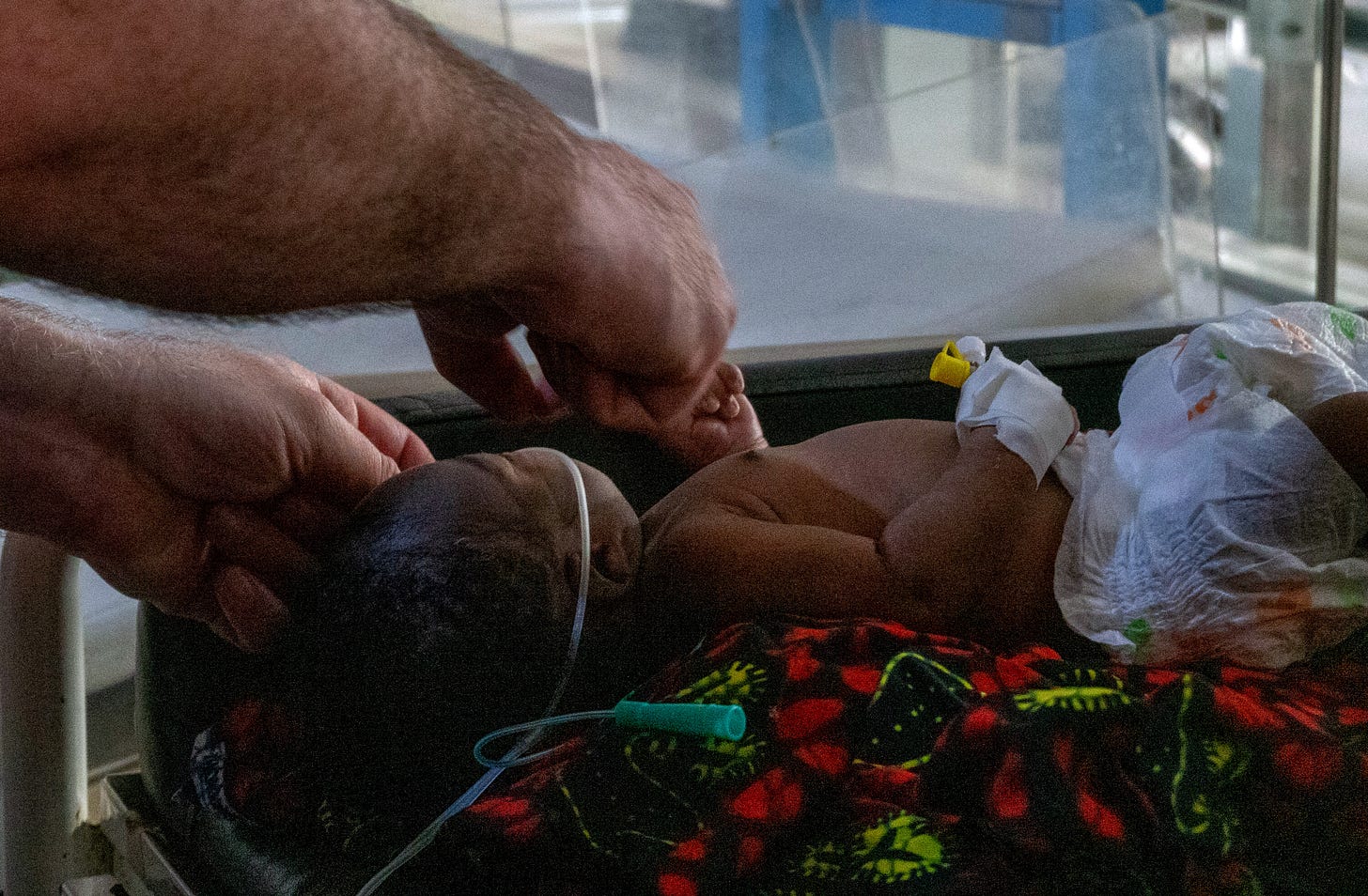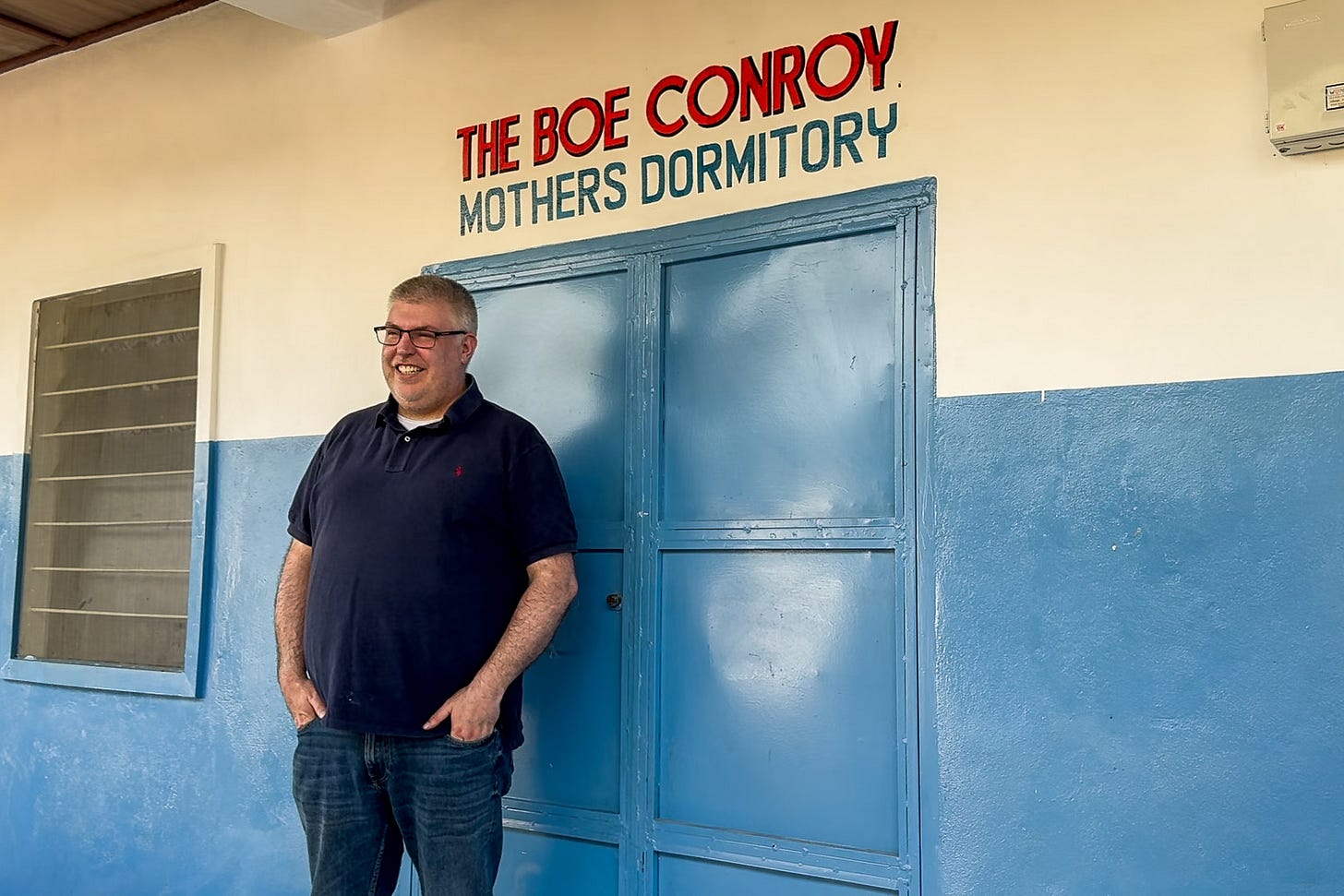
In Sierra Leone, a 20-minute power cut can be the difference between life and death for newborn babies.
In 2013, Dr Niall Conroy set up a neonatal intensive care unit at the Bo Government Hospital in Sierra Leone's second largest city, and started to train the staff to give the best possible care to the desperately vulnerable babies admitted there.
But there was one problem he couldn't solve: electricity.
Babies need warmth, and that means electrically powered incubators, and they need oxygen, which means oxygen concentrators, and the nurses need light in order to work and see the babies they are taking care of.
Although the Bo Government hospital is connected to the national grid, it suffers from almost daily power cuts. These can be a few minutes, they can be hours, or they can last days. When these power cuts happen, the incubators and oxygen concentrators turn off, and the babies who are reliant on them die.
In 2017, Dr Conroy had worked a long shift in the hospital nursing three babies back to health. When he returned the next day to check on the babies, he was told by the night staff there had been a power cut, and all three had died. In desperation, he posted the following Tweet:

Michael Liebreich saw that Tweet, reached out to Dr Conroy, and put together a group of friends and supporters to create Project Bo. Since then, the neonatal intensive care unit has had a solar system and batteries installed, and hundreds of babies’ lives have been saved due to a reliable electricity supply and improved medical care.
Eight years on, Michael visits Project Bo for the first time to see how the system is performing, meet the medical professionals working there, and find out what else can be done to improve it.
Watch the documentary now on YouTube

Support Project Bo
There is still a huge amount to be done to improve the quality of care at the neonatal ward, and so we’re asking for your help and support.
The solar system still suffers from around two power cuts per month, and we can see from the remote monitoring that we need to add more batteries. There are single points of potential failure, so we want to split the system and create redundancy and resilience. Physical security needs to be improved so that the system isn’t brought down by a rogue trying to steal a panel, wiring or batteries.
And we also need to plan for increased demand: Dr Conroy thinks the number of potential admissions might stabilize at around 200 per month, compared to around 140 today. So we'll need to increase the size of the solar system by adding more panels, and we need to improve the facilities for nurses, breast feeding mothers and babies. The unit is incredibly cramped today, and it doesn't even have running water.
If you want to support Project Bo, we would love to hear from you. There is almost no limit to the amount Dr Conroy and the hospital could use, but we're starting with a figure of $100,000. Please visit projectbo.org to find out more. Thank you.
Watch the full documentary on YouTube, or find the audio version on your favourite podcast platform. To learn more about Project Bo, please visit projectbo.org



